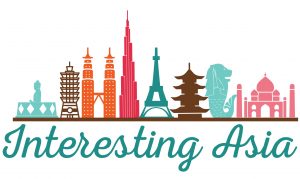If you live in Thailand or have been following the news, you’re more than likely aware of the shenanigans surrounding the candidacy of Khun Pita Limjaroenrat to be the next Thailand Prime Minister. Regardless of how the vote plays out, all eyes are on the Constitutional Court which could ultimately disqualify him. However, doing so would mean they would need to interpret and possibly redefine existing laws on inheritance.
It’s a complex situation that dates back to the passing of Khun Pita’s father who left a fairly sizeable estate with many different holdings, including shares in a defunct media business. As his son and an heir, the candidate for Prime Minister was named executor.
But what is an executor and why may it determine the next Thai Prime Minister? Here’s the answer to those critical questions.
What is an executor?
Anyone creating a will in Thailand must select an executor to fulfill their wishes upon passing. Usually, a beneficiary is named to this role as opposed to a third party since this individual knows when the person has died and where the assets in the will are located.
The executor receives a court order that allows them to go to the relevant authorities to transfer and distribute the estate according to the will. In typical cases where there are only a handful of heirs and the estate is reasonably sized, it will take up to six months to complete.
However, larger estates with many heirs can take years to disperse, especially as the executor may have other obligations to attend to. Larger estates can also cause issues if the deceased has assets that are not included in the will since no one really knows what to do with these.
That brings us to the current case against Khun Pita who finds himself stuck in limbo regarding what exactly an executor is responsible for.
Does an executor own non-distributed assets?
This is the million-baht question at the moment, and it is what the Constitutional Court is mulling over. Khun Pita argues that an executor does not own the possessions of the deceased outside of what is in the will. Since the media business shares were not stated to be his in the will, they have never been transferred to his possession and are waiting to be liquidated.
The opposition argument is that as an heir and executor, the media business shares are owned by him. That runs afoul of rules regarding prime minister candidates in Thailand and means he should have been disqualified from running.
What does Thai law say about all this?
Nothing really. This hasn’t been an issue in Thailand until now. And the only reason it has become an issue is because…well…politics. The law as it currently stands doesn’t clearly say one way or another if an executor owns possessions of a deceased party not mentioned in the will.
This puts the Constitutional Court in an awkward position. A ruling against Pita could unlock a slew of unintended consequences as it relates to inheritance laws in the Kingdom. This would ultimately make it much more challenging for anyone to be an executor and is not ideal.
Final thoughts
We still look to be in the middle of what is shaping up as a very long saga, a familiar tale in Thai politics. Between the prime minister’s vote, Constitutional Court case and a host of other issues, it’s impossible to know just how this all plays out.
Keep Reading: Thailand hopes to benefit from competition between China and the United States

































